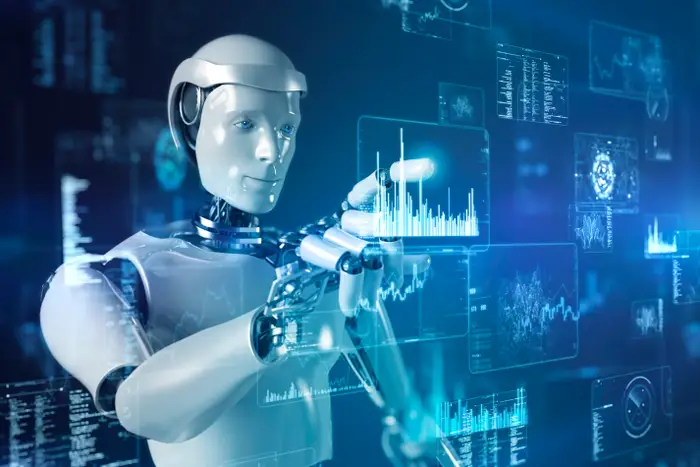Artificial Intelligence (AI) has rapidly transformed the way we live, work, and interact with technology. AI has become an integral part of our daily lives, from voice assistants and autonomous vehicles to personalized recommendations and advanced data analytics. As we venture into the future, the potential of AI continues to expand, promising groundbreaking advancements that will revolutionize various industries and reshape our world. This article will explore the exciting possibilities of the AI-driven future, highlighting key areas where AI is set to make significant strides.

In the future, AI will further refine personalization, tailoring experiences to individual needs and preferences. Advanced machine learning algorithms will analyze vast amounts of data, enabling systems to accurately predict and anticipate user behavior. From personalized entertainment and curated news feeds to hyper-targeted marketing, AI will create immersive experiences that cater specifically to our unique tastes and interests.
We can expect the proliferation of autonomous systems and robotics in various domains. AI-powered robots will become more intelligent, versatile, and capable of precisely performing complex tasks. Industries such as manufacturing, healthcare, agriculture, and logistics will witness significant advancements as robots automate repetitive processes, improve efficiency, and contribute to increased productivity. Autonomous vehicles will continue to evolve, transforming transportation and revolutionizing urban mobility.
AI will play a pivotal role in revolutionizing healthcare, fostering early disease detection, personalized treatments, and improved patient care. Machine learning algorithms will analyze vast amounts of medical data, accelerating the development of innovative diagnostics and treatment methods. AI-powered virtual assistants will aid healthcare professionals in diagnosing diseases, recommending treatment plans, and providing real-time monitoring, even in remote areas. Precision medicine, empowered by AI, will enable targeted therapies tailored to an individual’s unique genetic makeup.
As AI becomes more pervasive, there will be a growing emphasis on ethical considerations and transparency. Researchers and policymakers will focus on developing frameworks to ensure fairness, accountability, and transparency in AI systems. Explainable AI will gain importance, enabling humans to understand and trust the decisions made by AI algorithms. Efforts will be made to address biases in AI systems and ensure they are designed to benefit all members of society.
AI will augment human capabilities, enabling us to achieve tasks more efficiently and effectively. Collaborative systems will enhance productivity and creativity, allowing humans and machines to work hand in hand. For instance, AI-powered tools will assist professionals in data analysis, decision-making, and problem-solving, providing valuable insights and recommendations. The combination of human ingenuity and AI-driven support will unlock new frontiers of innovation across various industries.
The future of AI holds tremendous potential, opening up exciting possibilities for advancements in personalization, autonomous systems, healthcare, ethics, and augmented intelligence. As we harness the power of AI, it is essential to navigate the associated challenges responsibly and ethically. By embracing AI as a transformative force, we can look forward to a future where intelligent machines work alongside us, enhancing our lives, driving innovation, and reshaping the world as we know it. The journey ahead is filled with promise, and the future of artificial intelligence is poised to be remarkable.
Leave a Reply